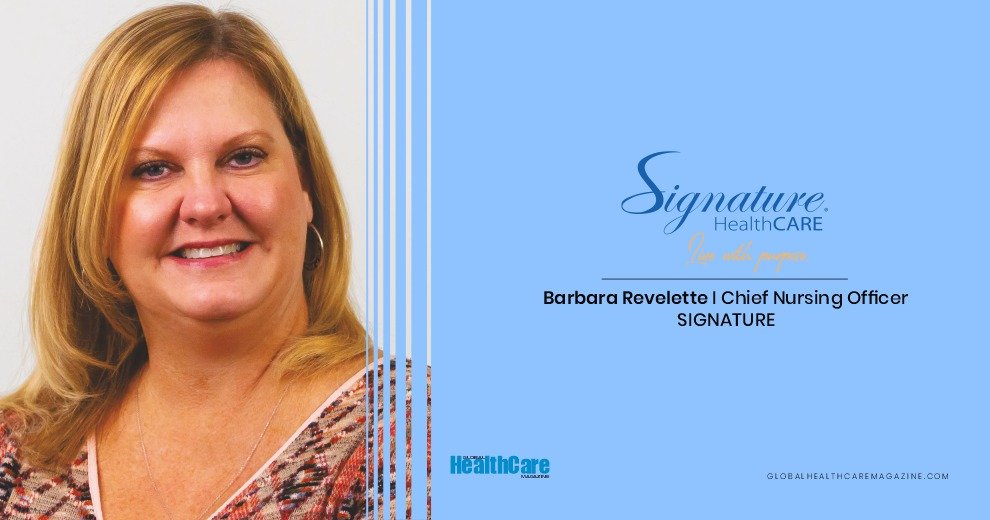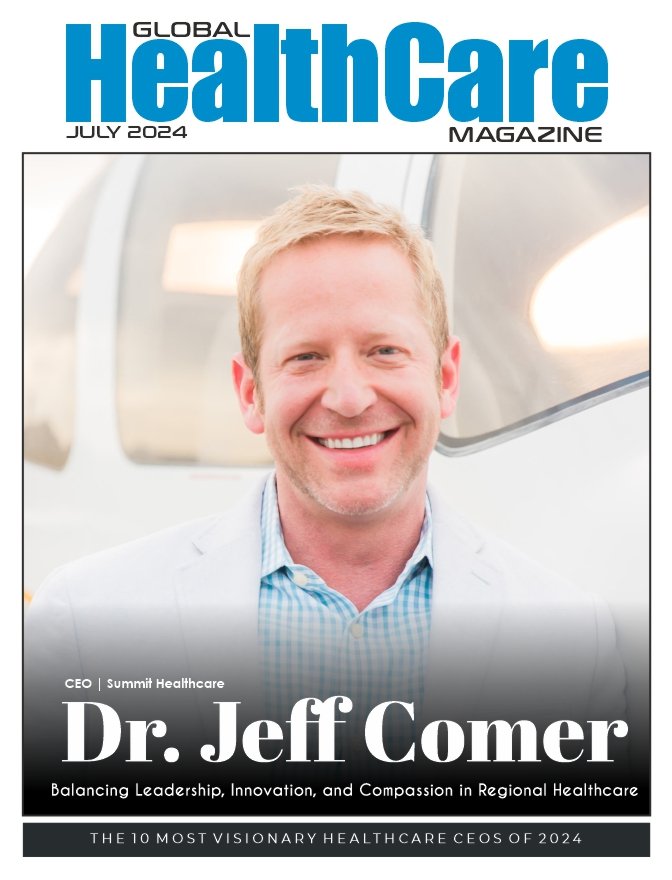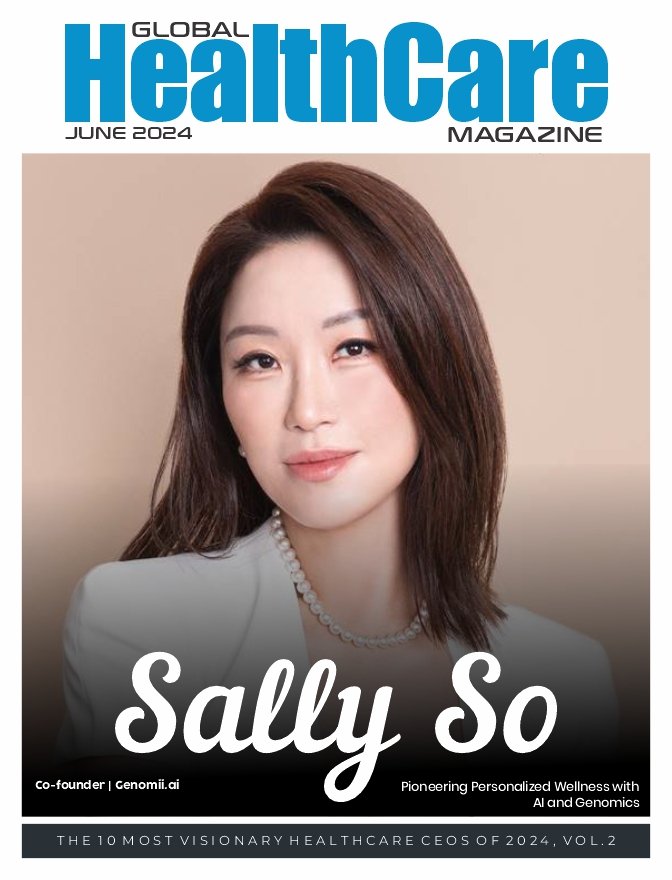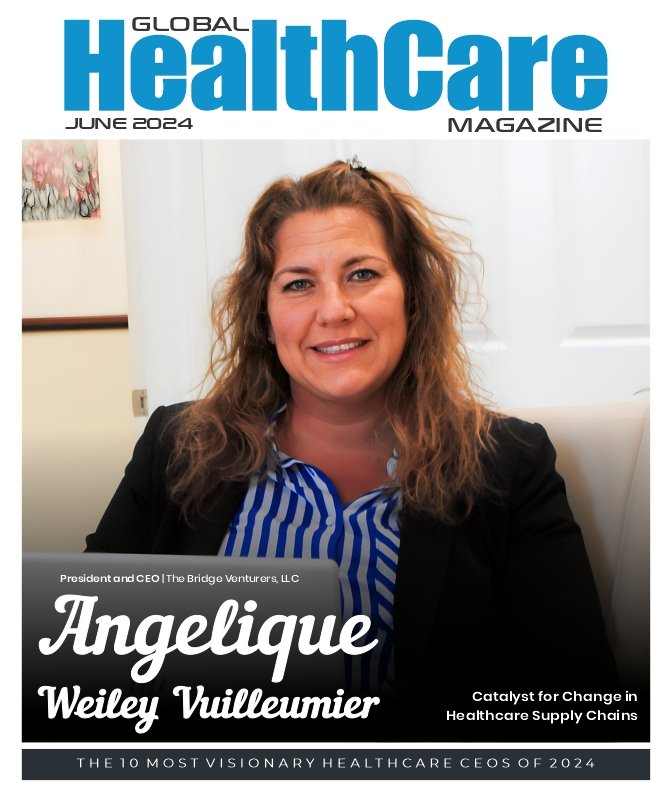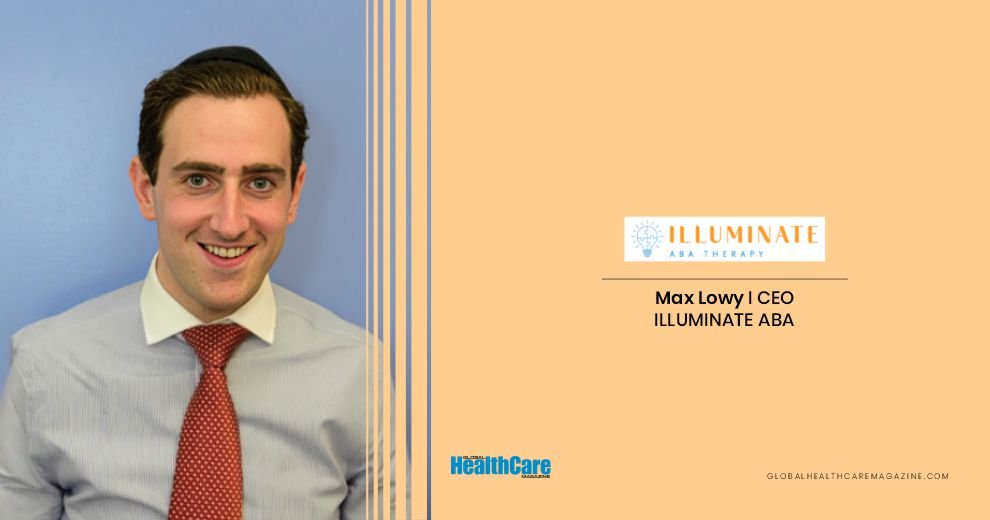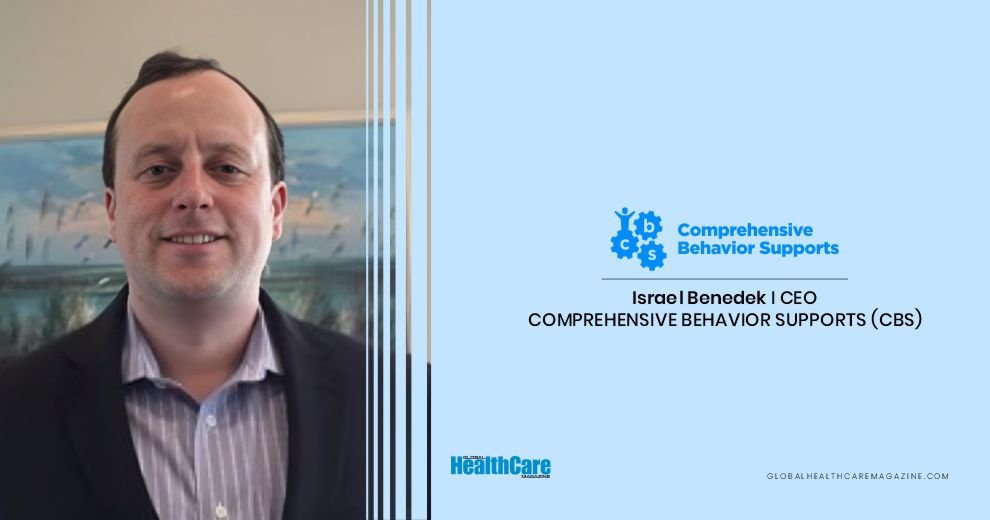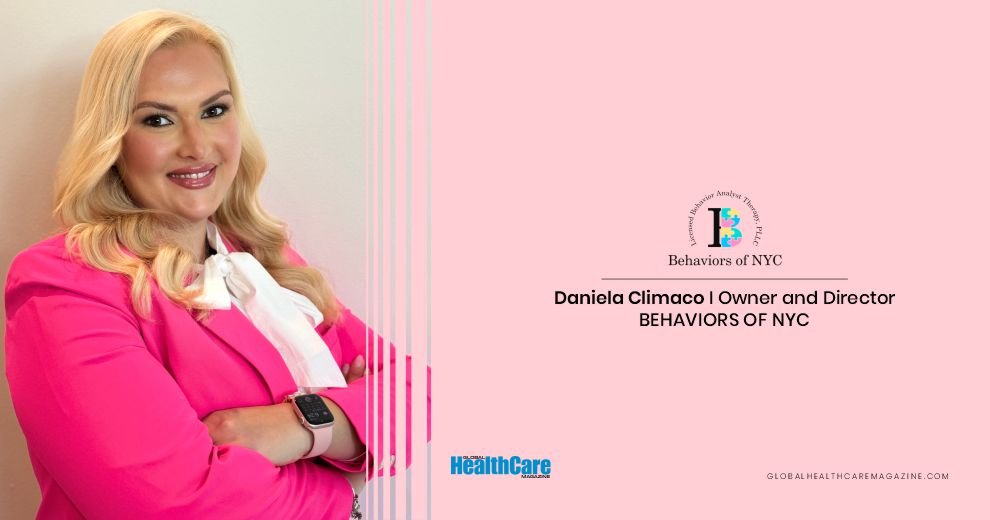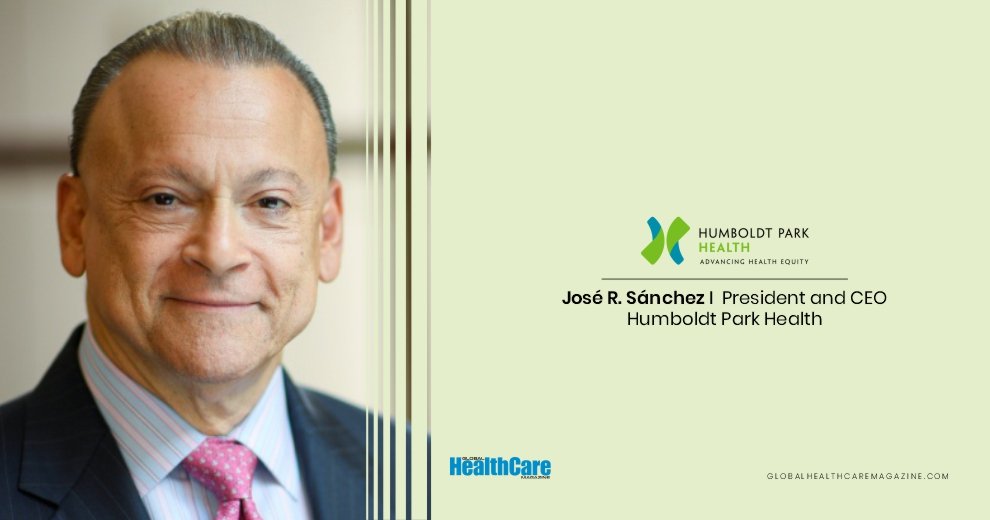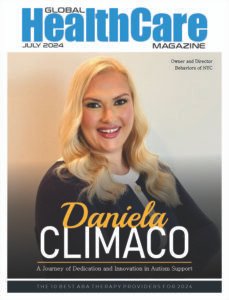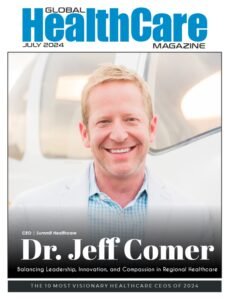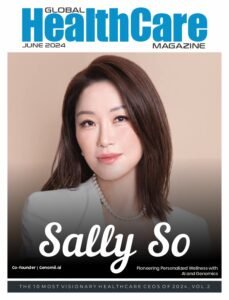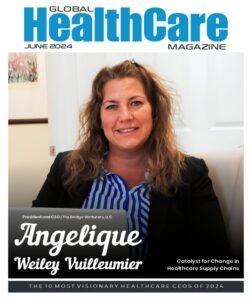- Barbara Revelette (RN, MSN), with over 25 years of experience in clinical and operational leadership roles, advocates that compassionate care is the cornerstone of healthcare.
- Inspired by the birth of her first daughter, Barbara’s path evolved with an MSN and MBA, guiding her towards leadership and educational roles within nursing.
- As the Chief Nursing Officer at Signature, Barbara leads efforts to provide long-term care to the elderly and those requiring extended medical and rehabilitative services.
Barbara Revelette (RN, MSN), with her deep-rooted desire to help people and a career spanning over 25 years in clinical and operational leadership roles, firmly believes in one thing: compassionate care forms the bedrock of healthcare.
Her journey began with nursing at a community college, inspired by the birth of her first daughter. This path led her to earn a Master of Science in Nursing (MSN) and a Master of Business Administration (MBA), steering her towards leadership and education within nursing.
Barbara has navigated through diverse healthcare environments, including ICUs, emergency rooms, research institutions, and long-term care facilities. In all these settings, she has found immense fulfillment in offering compassionate care, especially to the elderly.
Now, as the Chief Nursing Officer at Signature, a comprehensive healthcare organization known for its commitment to high-quality, personalized care, Barbara leads the charge in providing long-term care to the elderly and those in need of extended medical and rehabilitative services.
Recently, Global Healthcare Magazine had a conversation with Barbara. She emphasized the importance of empathy and compassion in healthcare and voiced her belief in the potential of continuous education and leadership in nursing to enhance patient care globally.
GHM: When was Signature established? What are the core specialties and services offered by Signature?
Barbara: Signature was established in 2007. It is a comprehensive healthcare organization known for its commitment to providing high-quality, personalized care to its residents. Its specialty lies in providing long-term care to the elderly and those in need of extended medical and rehabilitative services. The organization’s approach is based on a resident-centered philosophy, ensuring that every aspect of care is tailored to the individual needs and preferences of its residents.
At the heart of Signature’s mission, we aim to enhance the quality of life for our residents. We achieve this through a blend of skilled nursing care, rehabilitative services, and a lively community environment. We strive to foster autonomy and independence among our residents, providing them with the necessary support and resources they need to maintain as much self-sufficiency as possible.
At Signature, we prioritize addressing social isolation, a common issue among long-term care residents. We incorporate a variety of community activities, social programs, and technological solutions to help residents stay connected with their loved ones. This holistic approach ensures that each resident receives not only the required medical care but also leads a fulfilling life in a supportive community setting.
GHM: Being at the helm of Signature, what are your prominent roles and responsibilities?
Barbara: As the Chief Nursing Officer (CNO) for Signature, I oversee nursing operations, drive strategic initiatives, ensure compliance with healthcare regulations, and lead efforts to enhance resident satisfaction through a resident-centered care approach.
My role also involves shaping the future of care delivery to better meet the needs of those we serve. At Signature, we address the pain points of our residents by, among other things, promoting autonomy and independence, combating social isolation through community activities, and leveraging technology to keep residents connected with their families and friends.
GHM: How do you empower and support your nurses in their professional development?
Barbara: Staying updated with the latest research, trends, and techniques is vital in healthcare, and continuous education is the key. Effective communication, robust leadership skills, and a robust network are essential to navigate the complexities of healthcare.
I advocate for continuous education and training, promote open communication, and facilitate mentorship programs, pairing less experienced nurses with seasoned professionals. This strategy empowers nurses, enhancing their skills and nurturing leadership qualities.
Addressing nurse burnout is also a priority; I create a supportive work environment, advocate for manageable workloads, and foster a culture of prioritizing work-life balance.
Moreover, our focus on patient-centered care ensures that the well-being and dignity of our patients remain at the forefront of all decision-making. This approach leads to improved patient outcomes and a motivated team.
GHM: What guidance would you offer to aspiring nursing leaders who wish to follow your path?
Barbara: To those aspiring to leadership in nursing, I suggest investing in continuous education and gaining diverse experiences across various nursing specialties and settings. It’s crucial to develop strong communication and leadership skills, nurture emotional intelligence, and build a solid network for effective leadership.
Moreover, don’t overlook the importance of self-care and resilience. The demands of nursing leadership are significant, and maintaining your well-being is vital to sustain your leadership effectiveness.
GHM: How do you achieve a balance between your professional and personal life? What are your interests outside of work?
Barbara: Achieving a work-life balance, especially as a nurse leader juggling family responsibilities and personal interests like travel, requires careful planning and prioritization. I maintain this balance by setting clear boundaries between my work and personal life, ensuring that my family is my focus when I’m at home. Trusting my team and delegating effectively allows me to step back from work, confident that operations will run smoothly in my absence.
I also make it a point to schedule regular time for travel and leisure activities with my family, which helps us rejuvenate and stay connected. Open communication with my spouse about our schedules and needs is crucial, enabling us to support each other effectively.
Finally, I prioritize self-care, ensuring I set aside time for activities I love. This keeps me energized and motivated, both at work and at home.
GHM: Is there any additional insight or advice you’d like to share with our readers?
Barbara: The integration of technology in long-term care is crucial. Utilizing electronic health records, telemedicine, and automated systems helps streamline tasks and improve care accuracy, allowing nurses to focus more on resident-specific care.
These technological advancements enhance care delivery efficiency and meet our residents’ unique needs better. Innovation and technology are increasingly becoming integral to the future of long-term care.
Besides, nurses must work at the top of their scope, utilizing their full range of skills and knowledge. These innovations not only optimize the efficiency of care delivery but also allow nurses to spend more time addressing each resident’s unique needs, thereby improving the quality of care and patient outcomes.
Quote
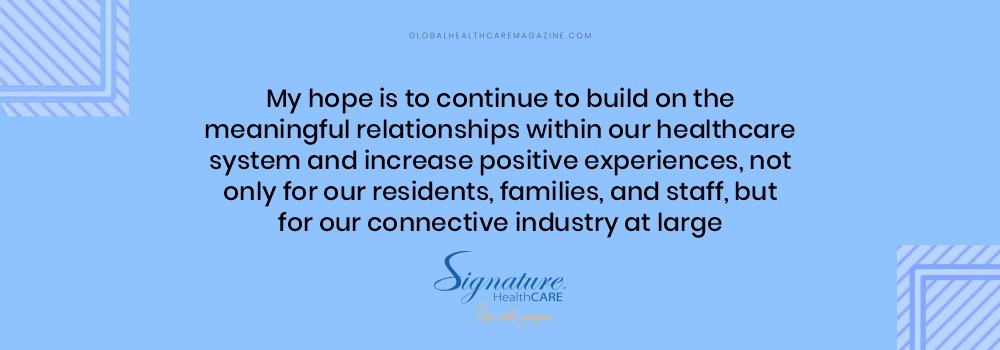
Also Read: The 10 Most Empowering Chief Nursing Officers of 2024

